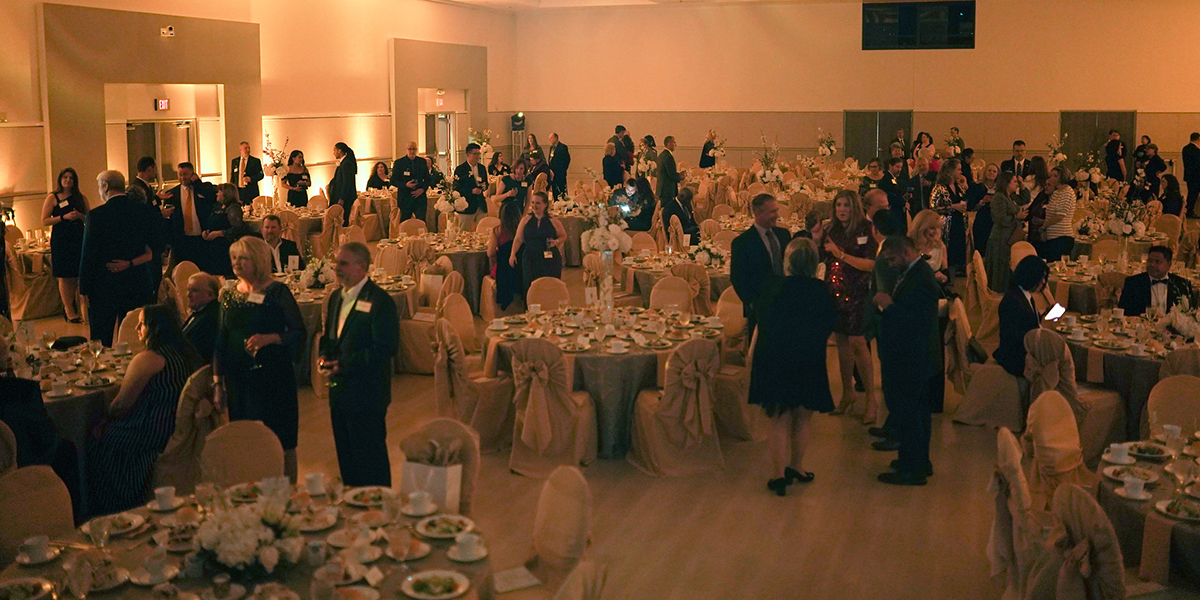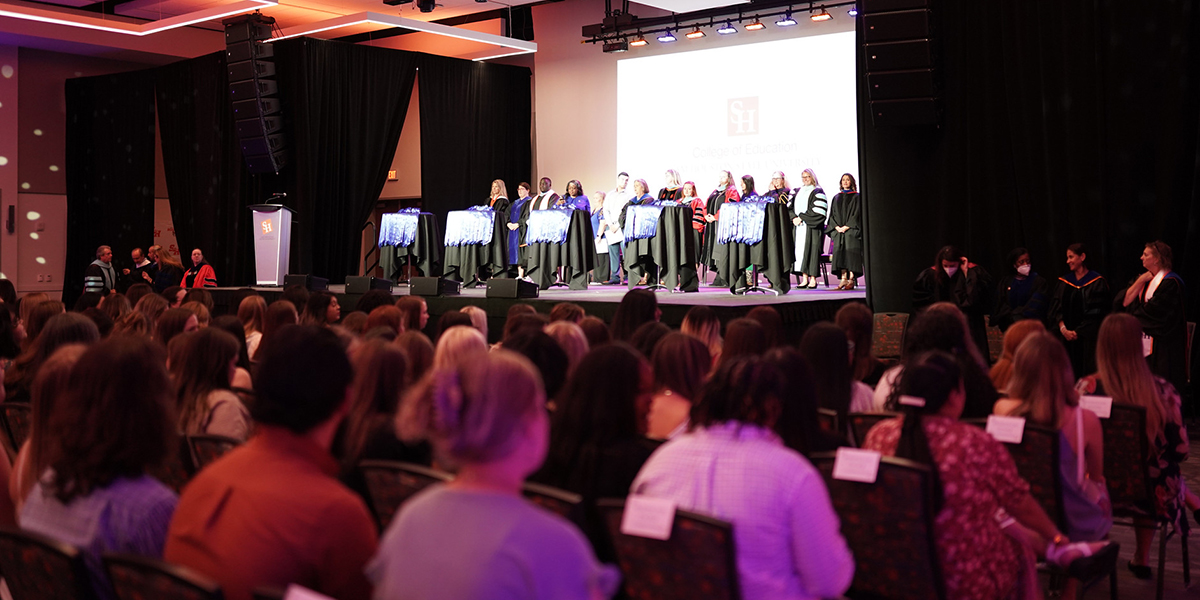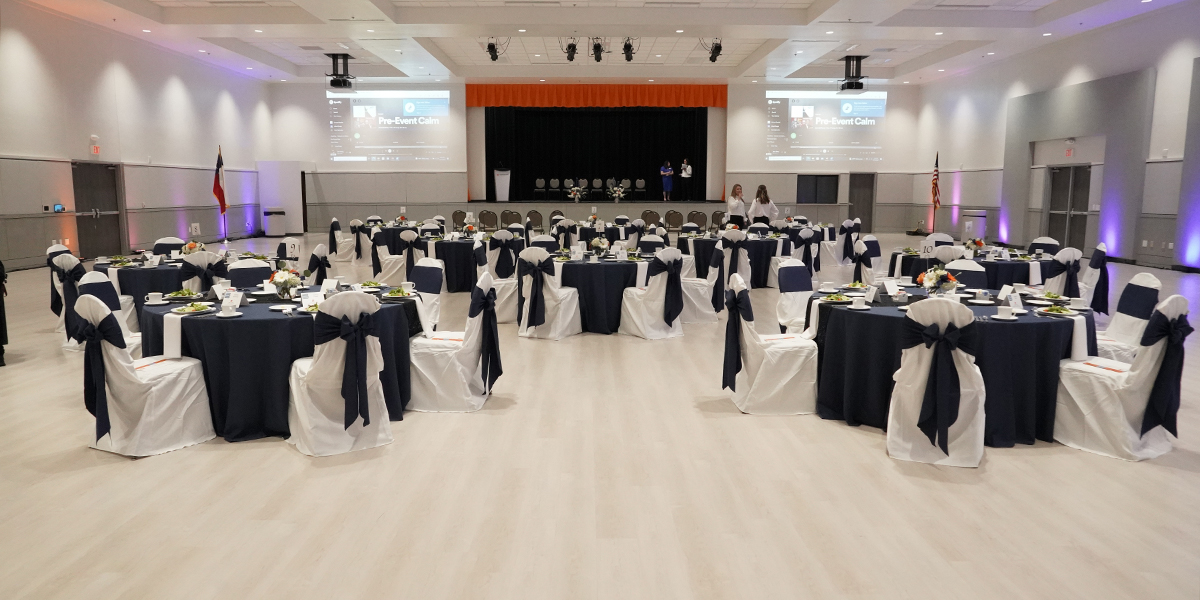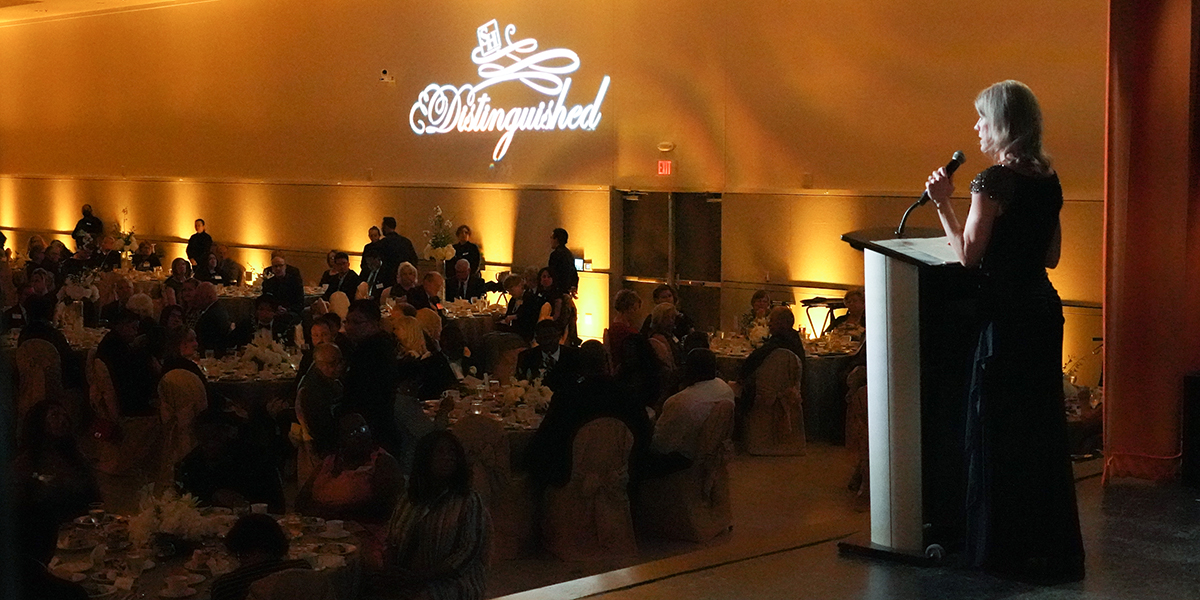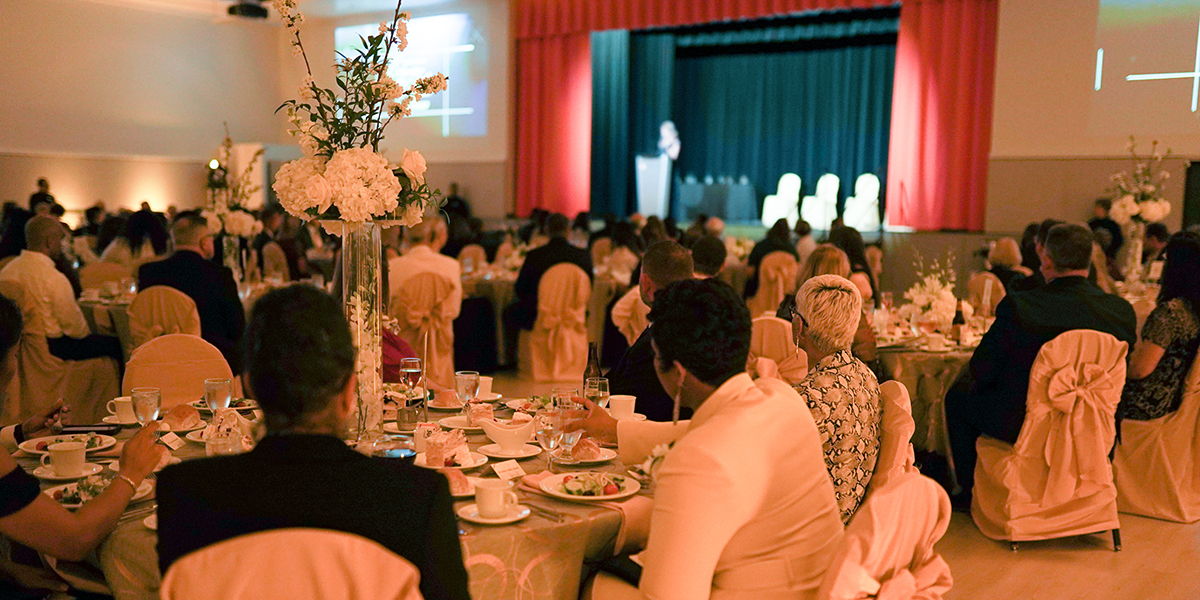Event Services
The purpose of the College of Education (COE) Event Services is to provide support and direction for all college events.
An event is defined as any meeting, gathering, or presentation, that is not solely student facing or for academic purposes (i.e., class, dissertation defense/proposal, etc.). Events may be either on or off campus.
In order to structure event services, all events will be classified into a level and services will be provided accordingly to ensure the highest quality event and the best possible reflection on the College of Education.
To ensure calendar placement and proper communications and marketing for an event, the following guidelines should be followed:
- Anticipated Level 1 events should be submitted at least 90 calendar days prior to the event date
- Anticipated Level 2 events should be submitted at least 60 calendar days prior to the event date
- Anticipated Level 3 events should be submitted at least 30 calendar days prior to the event date
ALL events (regardless of level) must be submitted to the Event Coordinator to be placed on the College of Education event calendar.
The Event Coordinator will review submissions and make a determination on event level based on the information provided.
Level 1 Events
Level 1 events are large in size and/or scope and typically have an anticipated attendance of 40 or more. These events may involve public outreach, donors, outside guests or speakers, and/or have an impact on multiple units. The scope of Level 1 events cannot be adjusted without major changes to the event timeline or budget. Based on impact and scope, some events may be classified as Level 1, regardless of attendance size (e.g., risk management concerns, safety training, need for centralization, etc.). These events typically require a planning process of 90+ days.
Examples of a Level 1 event include: Distinguished Educator of the Year, Hooding Ceremony, Pinning Ceremony, Data Day, Pre-Graduation Reception, Large Student Orientations, etc.
Level 2 Events
Level 2 events are moderate in size and/or scope and typically have an anticipated attendance of approximately 20-39. These events may be connected to an individual unit/department, but also have relevance to a larger community. These events may include guest speakers, the need for catering, complex budget upkeep, and need for marketing and communications. The scope of Level 2 events cannot be adjusted without some flexibility in the event timeline or budget. These events typically require a planning process of approximately 60 days.
Examples of a Level 2 event include: events associated with auxiliary enterprises, internal conferences, retirement receptions, and large departmental events.
Level 3 Events
Level 3 events are typically small in size and/or scope and have an anticipated attendance less than 20. These events are typically connected to an individual unit with little to no exposure to external areas. The scope of Level 3 events can usually be adjusted with little to no impact on the event timeline or budget. These events typically require a planning process of 30 days or less.
Examples of a Level 3 event include: department meetings/lunches, faculty meetings, dissertation proposal/defense, student information sessions, department receptions, and smaller training sessions.
-
The Planning Process
We understand the importance of proper planning and the development of each event. The following has been developed to streamline the process.
Phase 1 - Initiating the Event
In this phase, the purpose of the event is defined, and the goals and objectives of the event are articulated. Obstacles that may impede the success of the event are identified. Common questions asked in this phase are:
- Is there a problem or opportunity that is creating a need for this event?
- What resources (both financial and personnel) are available?
- Is there adequate funding?
- Is there support for the event?
Phase 2 - Planning the Event
The planning phase is the most important step in the process and will help determine the event level. In this phase, lead and key event personnel are determined, specific tasks and deliverables are outlined, master timeline is constructed, communication and marketing strategy is designed, and success measures are determined.
Phase 3 - Performing the Event
In this phase of the process, the planning comes together to ensure that the event is of highest quality. Stakeholders are updated, resources are tracked, timeline adjustments are made as needed, and the event occurs.
Phase 4 - Monitoring and Controlling the Event
Monitoring and controlling of the event may not be sequential with previous stages. In this phase we ensure that the event aligns with expectations. Monitoring includes record keeping, alignment with the strategic plan, preventing and addressing event scope-creep, and cross-referencing goals or deliverables outlined in the planning phase.
Phase 5 - Closing the Event
After the event, payments are finalized, and all event documentation is filed for future reference. All Level 1 and Level 2 events will include an internal debriefing session.

